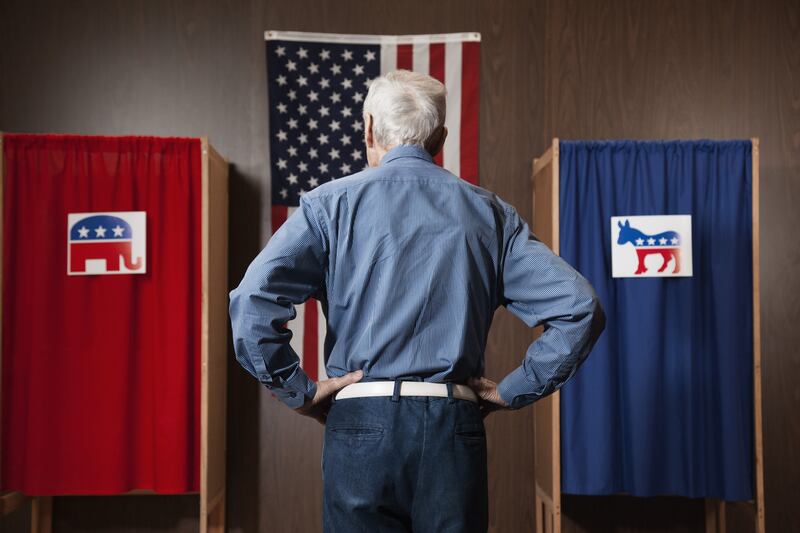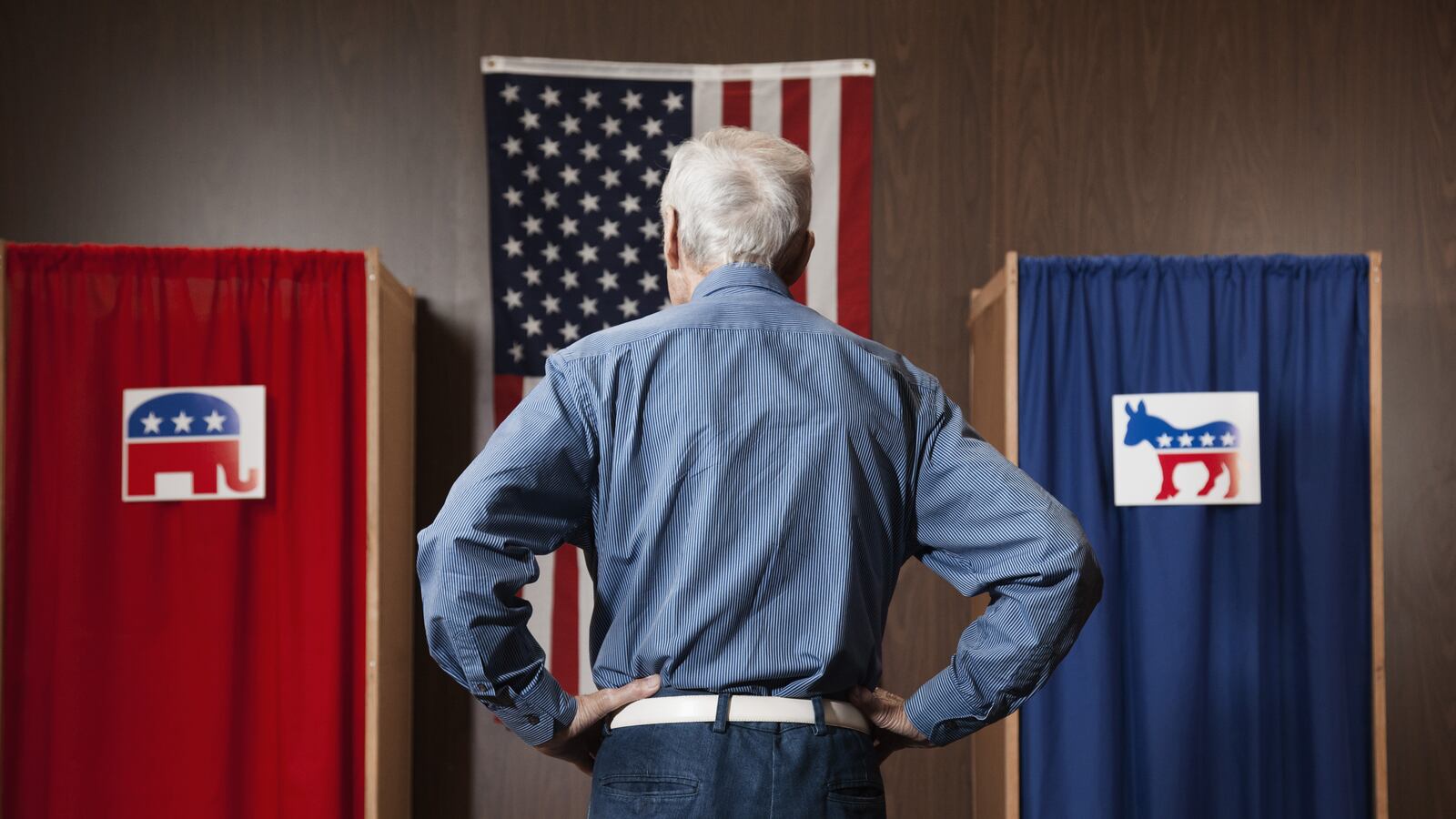District of Columbia voters went to the polls Tuesday, a few of them anyway, to vote in mayoral and city council primary elections. Unfortunately, although I am a Washington resident, I was not one of them. My non-participation wasn’t due to a lack of interest but because I am an Independent voter.

The DC Board of Elections officially lists my party affiliation as “No Party.” It’s a non-affiliation I claim proudly but it comes with a price. Like many millions of other unaffiliated voters around the country I am prevented from exercising the right to vote in partisan primary elections.
The outcome of Tuesday’s election will have a significant impact on the future direction of the city and I would have liked to weigh in. Current Mayor Vincent Gray is facing probable indictment on corruption charges—five people who were connected with his 2010 campaign have already pleaded guilty to felonies related to that campaign.
City Councilor Muriel Bowser, the winner Tuesday out of seven Democratic challengers, received a total of only about 40,000 votes. In a city with 650,000 residents—370,000 of whom were eligible to vote in Tuesday’s primary according to the District’s Board of Elections—that’s a pretty small group to decide who the next mayor will be.
City officials are saying once all of the ballots are counted it may prove to be the lowest turnout mayoral election ever.
Bowser will have a challenger in the general election. David Catania a former Republican, now an Independent and a member of the City Council since 1997, is also running for mayor. Polling shows him to be a serious candidate but history is against him.
Seventy-five percent of all registered voters in Washington are Democrats and the winner of the Democratic primary has gone on to become mayor in every election since the city began electing mayors in 1974.
That’s why being able to vote in the primary election is so important and why preventing Independents like me from participating is fundamentally undemocratic.
Independent voters all over the country face the same dilemma. Increasingly with gerrymandered congressional and state legislative districts and this nation’s geographic sorting of people living near those who think and vote just like them, the general election is essentially meaningless and the primary vote is the deciding election in many places.
When I was interviewing hundreds of voters for my book “The Swing Vote” one of the things I heard most often from Independent voters, who are now a larger group than either Democrats or Republicans, was their dissatisfaction with the candidate choices they were given. So many of them told me they feel they are always choosing between the lesser of two evils and voting against, rather than for someone.
About half the states in the country bar unaffiliated voters from participating in primary elections even though they pay for the process with their tax dollars. Informational election materials, ballots, voting machines, poll workers and ballot tabulation along with most polling places are financed by the public not political parties.
This closed primary system, controlled but not paid for by the Republican and Democratic parties, was upheld by the Supreme Court in a 7-2 vote in 2000 that said open primaries violated the political parties First Amendment rights of free association. In the majority opinion, Justice Antonin Scalia worried that an open primary in which non-party members were allowed to vote “could be enough to destroy the party."
Given the current state of polarization and dysfunction to which the two parties have helped drive our politics, I think a lot of Americans might consider that a good thing. Despite the court’s ruling though, more than half the states still do have open primaries that allow all registered voters to take part and I would argue every state should follow this model.
There are scores of polls showing record dissatisfaction and distrust with government and our two major parties and political system, undoubtedly a significant factor in declining participation rates in elections. Many voters have tuned out a dysfunctional political system they think leaves them out.
Especially Independents and young voters think politics is a rigged game controlled by the two parties and moneyed special interests and largely not worth their attention. The latest polling reveals that more than 50 percent of Millennials under the age of 33 now identify as Independents.
The Supreme Court’s Wednesday ruling lifting the cap on how much wealthy contributors can give to candidates, parties and PACs will make things even worse and accentuate the influence of a few big money donors on the political system.
In 2012, for the first time in 16 years, fewer ballots were cast than in the previous presidential election—about four million less. It was also the first time in a decade that the turnout percentage of eligible voters in a presidential election was under 60 percent.
Some voters even suspect the two parties are trying to drive down participation so they can just appeal to their core group of supporters and win elections that way.
Sadly, the behavior of political parties, especially the Republicans, seems to prove this theory.
Over the past few years a number of swing states with Republican-controlled legislatures including Ohio, Wisconsin and North Carolina have been chipping away at voting rights by making it more difficult to register and vote, shrinking voting hours and early voting and eliminating polling locations. It's beginning to look like Republicans only think they can win elections by trying to prevent people from voting.
The Supreme Court decision last year to overturn a portion of the Voting Rights Act cleared the way for a number of Southern states to change their laws governing voting and many of them wasted no time in doing just that.
We should be making it easier for people to register and vote not more difficult. At a time when we have never needed a greater diversity of voices in the political process more, political parties are trying to shut them out. We must promote greater participation not coming up with obstacles to discourage voters.
Given this perfect storm of more restrictive voting regulations, dysfunction, lack of faith in those running for office and a feeling that political change seems impossible, expect turnout in November to be even worse than a typical mid-term election.
The cruel April Fools joke that prevented Independent voters like me from participating Tuesday is just another symptom of our broken political system.





